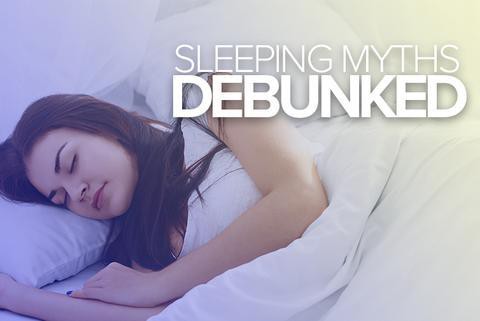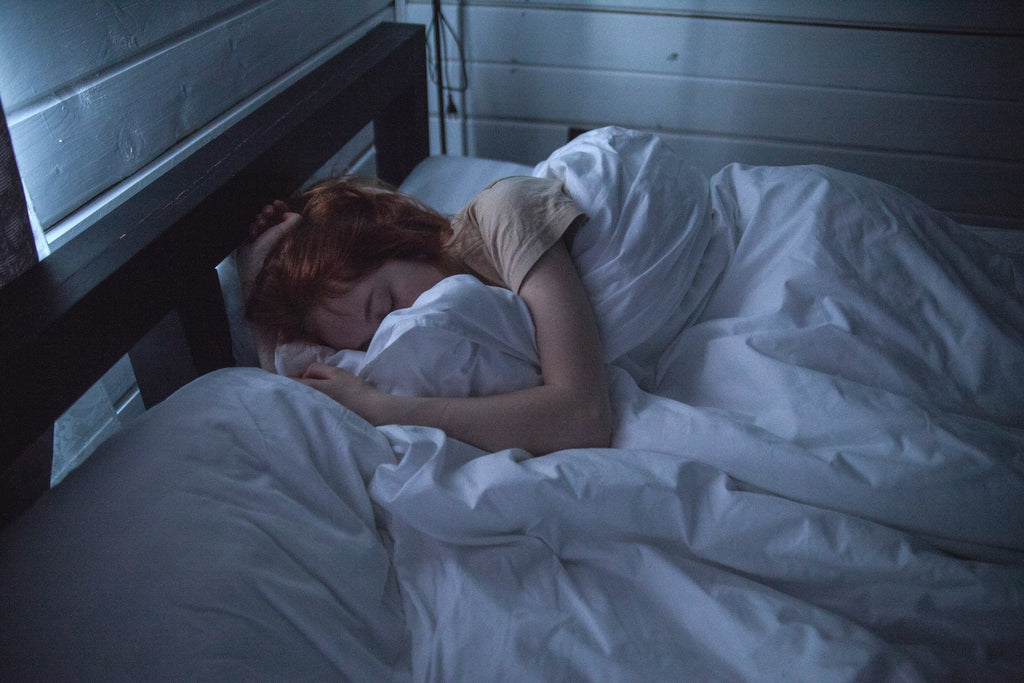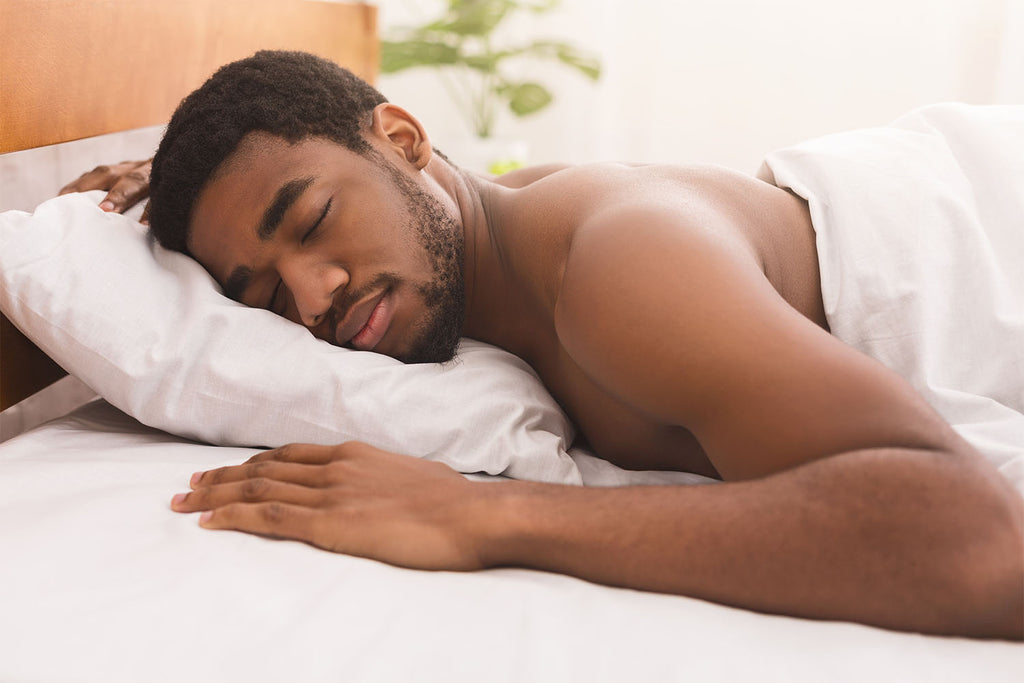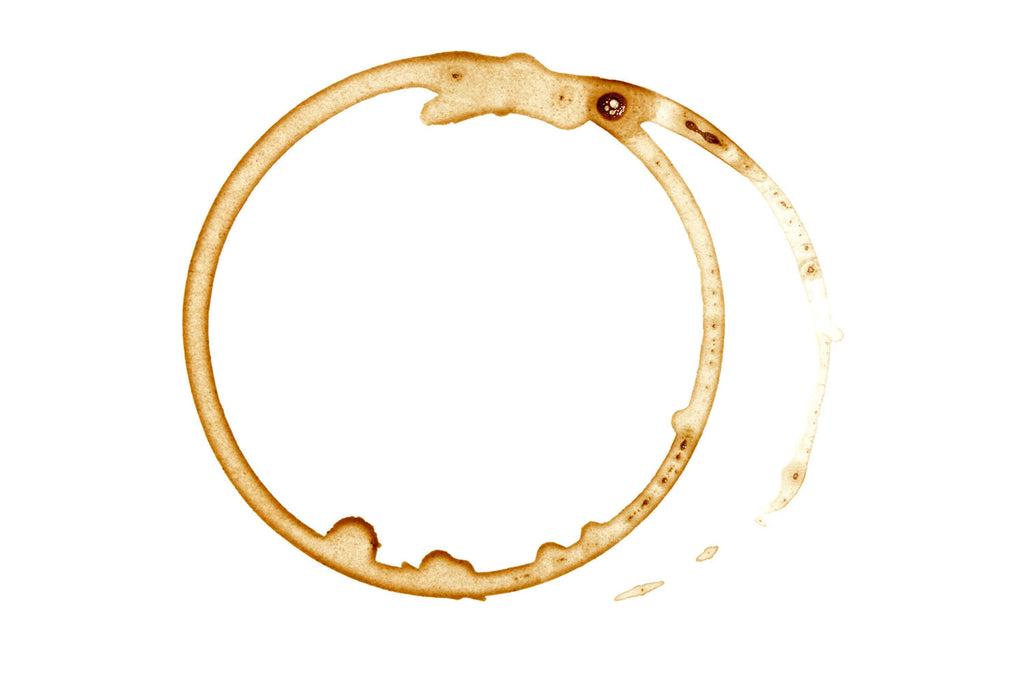
Sleeping Myths Debunked!


For a lot of us, falling asleep and staying asleep is one of the biggest trials of our day. For something that we get so much practice doing, it can be difficult to determine exactly why we are struggling to fall asleep. When we finally are able to lay down for the night, why are we constantly waking up in the middle of the night, staring at the ceiling? To help ease some of this burden, we have compiled a list of the biggest sleeping myths so you can determine exactly what is causing your night time issues and how to fix your sleep schedule! Take a look at our list of Sleeping Myths Debunked!
Decreasing Blue Light: Not a 100% Fix
With the increasing number of hours that we spend using electronic devices, it is imperative that we get some time away from our screens before bed time. Electronic devices emit blue light that disturbs our circadian rhythm by decreasing the amount of melatonin we are producing, making it harder to fall asleep at night. A recent trend with both smartphones and computers are programs that decrease the amount of blue light that your screens emit. While this does help to stop the issues of blue light, it doesn’t give you free reign to use your phone while laying in bed. Using your phone or any electronic device will stimulate your brain and make it more difficult to sleep. If you’re looking for the best night of rest, it’s vital to put down the phone!
5-6 Hours Will Do, Right? Not So Fast!
If you’ve ever spoken to your coworkers or friends about your sleeping habits, you might be surprised to find that some of them only get five or six hours of sleep a night. For many people, this seems to be “normal” and they have become accustomed to feeling unrested. However, it has been shown that many people actually need seven to nine hours a night. If you find yourself needing coffee to truly wake up in the morning, you are likely not getting enough rest at night!
Being a Little Sleepy Is Harmless: WRONG!
If you are finding that you are not getting enough sleep at night, there are greater side effects than simply feeling tired and sluggish during the day. If you are skimping out on your nightly rest, you are impairing both your decision making abilities and reaction times. This can be simply inconvenient or very dangerous if you work with heavy machinery! Over time, not getting enough sleep can have an impact on your long term health. Issues like memory problems, obesity, and anxiety are just a few of the many negative health effects that you can see with a chronic lack of rest.
I’ll Just Catch Up on My Sleep This Weekend: NOPE!
If you are sleeping less than needed during the week, many people believe that it is possible to simply make up sleep during the weekend. While sleeping a few extra hours or including a couple naps in your itinerary may sound like a great idea, you are not not making up for your “sleep deficit”. It is actually better to keep the same sleep schedule on the weekends as during the week, as you are training your body to know exactly when it is time to fall asleep, making the transition easier. When your sleep pattern is significantly different on the weekends, it is confusing for your body, similar to changing time zones. If you do decide to catch a few extra hours of sleep on the weekends when you are really sleep deprived, it may make you feel better for the day, but it is not a long term solution.
Medication Fixes Everything? Talk to Your Doctor
For many people looking to fall asleep faster, they often turn to either prescription or over the counter drugs. A common over the counter drug that is taken as a sleep aid is melatonin. It is often touted as a “safe” sleep aid, as it is a “natural supplement” that our body creates to help us fall asleep at night. Unfortunately, these supplements are largely unregulated in the US and the amount of the hormone that you get in a pill can widely vary. If you use too much melatonin, you overwhelm your hormone receptors in your body and it changes the way that you will react. Furthermore, when you use melatonin over a long period of time, your body will adjust to having the excess melatonin, making it less effective. This can promote insomnia over a period of time and can amplify the issue. There are many uses for melatonin, but requiring it to fall asleep every night, will do more harm than good!
Whether you have issues staying asleep at night, or tend to spend hours laying in bed counting the minutes until you have to get up in the morning, issues with sleeping can be a major inconvenience and detrimental to your health. It is important to use the best sleep practices to ensure that you get quality sleep to stay healthy and have productive days.
Do you have any Sleeping Myths to Debunk? If so, comment below!




